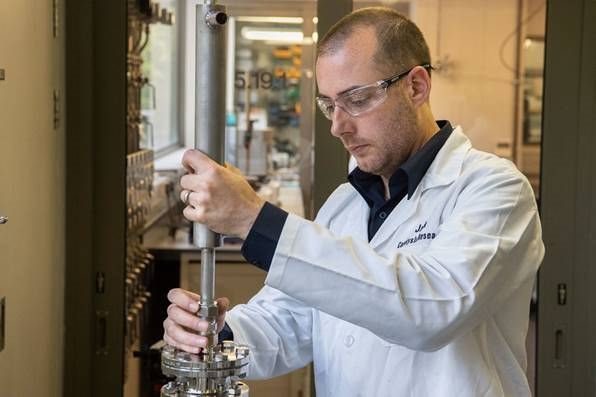






Fletcher has been shortlisted for his work on the Hyena Power Pod, a fuel-cell-based hydrogen generator that converts liquefied petroleum gas (LPG) into usable electricity, all within one device. He is the 11th South African to be shortlisted for the award since its inception in 2014.
“Being selected for the shortlist of the prestigious Africa Prize for Engineering Innovation is a real honour. The prize will give Hyena access to business training, sector-specific mentorship and the academy’s wide-ranging network of engineers and business experts,” said Fletcher.
Throughout Africa, there is a burgeoning demand for electricity in off-grid/poor-grid locations. Currently, this need is most often being met through diesel generators, which come with a long list of impediments, including poor reliability, demanding maintenance cycles, noise pollution and particulate emissions.
With the Power Pod innovation, Hyena aims to revolutionise the provision of electricity in poor-grid locations throughout Africa by employing fuel cell technology that converts hydrogen into affordable, on-demand and weather independent electrical power from locally available fuel.
Although hydrogen distribution infrastructure is practically non-existent in Africa, Fletcher and team identified LPG as an appropriate hydrogen carrier for on-site generation, as it is already widely used for cooking and heating throughout the continent.
The Hyena Power Pod comprises two sections: a hydrogen generator and a fuel cell.
In the former, hydrogen is released from water and LPG via a series of reactions over platinum group metal catalysts. In the fuel cell, hydrogen and air are converted to electrical power and water. The entire operation is silent while generating electrical power with 15% lower CO2 emission than a diesel generator.
“We want to make fuel cells possible and practical in Africa, where these new hydrogen technologies often face obstacles not considered in developed regions,” said Fletcher. “The use of existing LPG infrastructure makes the Power Pod a real solution that we believe can be truly transformative.”
Prior to being shortlisted for the 2022 APEI, the Hyena Power Pod’s potential was recognised when the company became the very first recipient of seed phase funding from the then newly established University Technology Fund in 2020.
Throughout its journey to commercialisation of the Power Pod, Hyena - a University of Cape Town (UCT) spinoff company - has worked closely with the Research Contracts & Innovation (RC&I) office at UCT. RC&I offers innovators and university spinout companies comprehensive support services, ranging from intellectual property registration and assistance with fundraising to identifying commercialisation opportunities and negotiating contracts with possible partners and/or funders.
With the support of RC&I, Hyena is set to receive a next round of investment from the UCT Evergreen Fund, which was set up with the specific purpose of enabling the commercialisation and application of UCT research outputs.
RC&I’s senior manager: innovation Dr Andrew Bailey said: “The IP Advisory Committee’s approval of the Evergreen Fund investment is subject to Hyena raising matching funding to support building and testing of the minimum viable product (MVP) in the field. This has been quite a tricky technology to develop due to the inherently high cost of the MVP, which includes a fuel cell, which means one needs unusually large amounts of funding very early on before the technology can be demonstrated at commercial scale. Unit costs will decrease significantly when the Power Pod is in commercial production.”